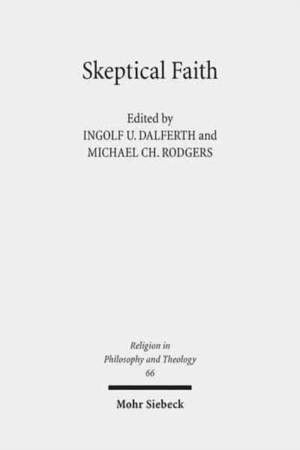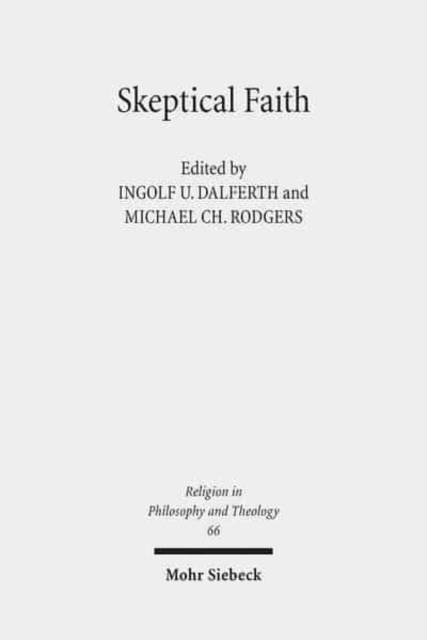
- Afhalen na 1 uur in een winkel met voorraad
- Gratis thuislevering in België vanaf € 30
- Ruim aanbod met 7 miljoen producten
- Afhalen na 1 uur in een winkel met voorraad
- Gratis thuislevering in België vanaf € 30
- Ruim aanbod met 7 miljoen producten
Zoeken
Skeptical Faith
Claremont Studies in Philosophy of Religion, Conference 2010
€ 72,95
+ 145 punten
Omschrijving
The authors of this volume rethink our usual understanding of the relationship between faith, belief and skepticism. For some, skeptical faith is an oxymoron and faith and skepticism are mutually exclusive states or attitudes. Others argue that there is no proper faith without skepticism about faith. Taking John Schellenberg's recent work on the possibility of a skeptical faith as a starting point, the authors respond to and in some cases seek to go further than Schellenberg. In a variety of ways, the papers take up the following questions: How are we to construe the relationship between faith, belief, and skepticism if we seek to understand what is characteristic of a life of faith, or of unfaith? Is belief in God necessary for faith in God to be possible? Does one need to have sufficient reasons for believing something before one is rationally entitled to having faith in something? In short, what is the relationship between faith and belief, belief and understanding, understanding and experience, and experience and skepticism?
Specificaties
Betrokkenen
- Uitgeverij:
Inhoud
- Aantal bladzijden:
- 245
- Taal:
- Engels
- Reeks:
- Reeksnummer:
- nr. 66
Eigenschappen
- Productcode (EAN):
- 9783161520099
- Verschijningsdatum:
- 31/12/2012
- Uitvoering:
- Paperback
- Formaat:
- Trade paperback (VS)
- Afmetingen:
- 153 mm x 229 mm
- Gewicht:
- 389 g

Alleen bij Standaard Boekhandel
+ 145 punten op je klantenkaart van Standaard Boekhandel
Beoordelingen
We publiceren alleen reviews die voldoen aan de voorwaarden voor reviews. Bekijk onze voorwaarden voor reviews.










